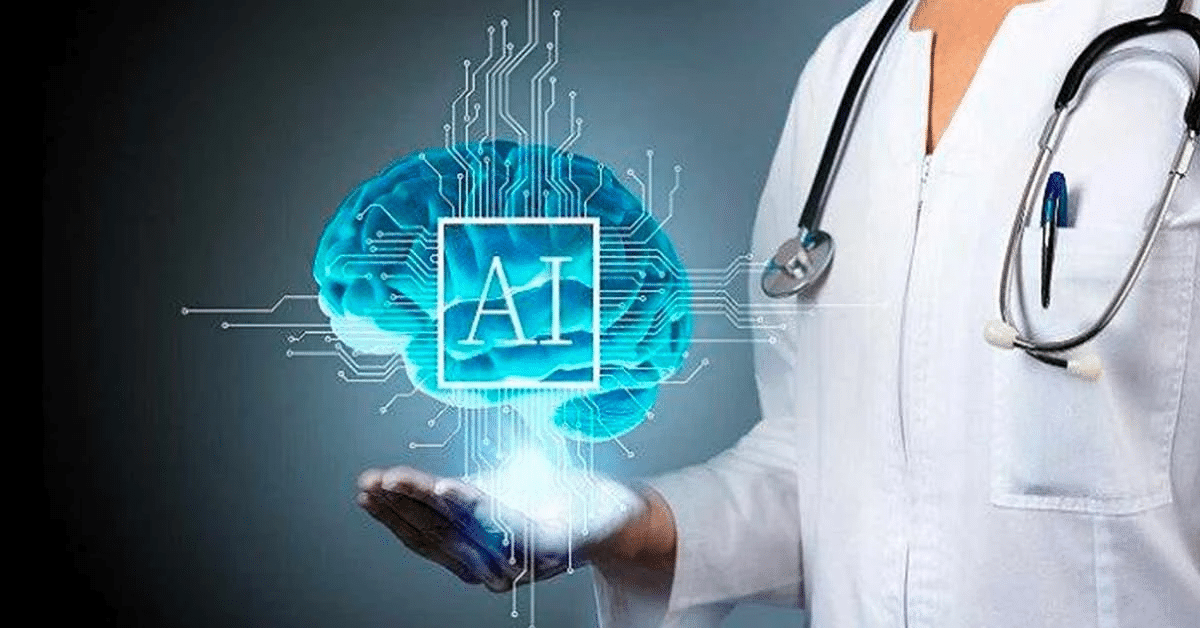In the fast-evolving landscape of healthcare diagnostics, the integration of Artificial Intelligence (AI) has emerged as a transformative force, revolutionizing the way medical data is processed, analyzed, and interpreted. Rapid Laboratory, at the forefront of technological advancements, explores the profound impact of AI in Health Care Diagnostics. This comprehensive guide delves into the role of AI, its applications, and the future it envisions for enhanced and efficient healthcare.
Also Read: Transforming Labs into Smart Technological Labs
Understanding the Role of AI in Health Care Diagnostics
Data Processing and Analysis
AI excels in handling vast amounts of medical data, providing a level of efficiency and accuracy that traditional methods may struggle to achieve. In Health Care Diagnostics, AI algorithms can process complex datasets from various diagnostic tests, including blood tests, imaging, and genetic analyses. Rapid Laboratory harnesses AI capabilities to streamline data processing, enabling healthcare professionals to derive meaningful insights swiftly.
Pattern Recognition and Disease Identification
One of the remarkable features of AI in Health Care Diagnostics is its ability to recognize patterns within medical data that might elude the human eye. AI algorithms can identify subtle nuances in diagnostic results, aiding in the early detection of diseases. Whether it’s spotting irregularities in blood tests or interpreting intricate imaging data, the integration of AI at Rapid Laboratory enhances diagnostic precision and contributes to more proactive healthcare interventions.
Applications of AI in Different Diagnostic Modalities
AI in Imaging Diagnostics
In radiology and medical imaging, AI plays a pivotal role in image analysis and interpretation. AI algorithms can identify anomalies, highlight potential areas of concern, and even assist in diagnosing conditions from medical imaging data such as X-rays, MRIs, and CT scans. Rapid Laboratory leverages AI in imaging diagnostics to enhance accuracy and efficiency, ensuring that healthcare providers receive detailed and nuanced insights from diagnostic images.
AI in Laboratory Test Interpretation
Health Care Diagnostics encompasses a wide array of laboratory tests, from blood tests to genetic analyses. AI is instrumental in interpreting results from these tests, offering a level of precision that aids in the identification of specific markers or patterns indicative of various health conditions. Rapid Laboratory utilizes AI to analyze laboratory test data, providing healthcare professionals with a comprehensive understanding of patient’s health status.
Enhancing Diagnostic Speed and Accuracy
Rapid Turnaround Times
AI’s ability to process data swiftly translates into reduced turnaround times for diagnostic results. In Health Care Diagnostics, this acceleration is crucial for timely decision-making and intervention. Rapid Laboratory’s integration of AI ensures that diagnostic reports are delivered promptly, allowing healthcare providers and patients to act swiftly on the insights provided by the diagnostic data.
Minimizing Diagnostic Errors
AI contributes significantly to minimizing diagnostic errors by offering a second layer of analysis. In cases where the interpretation of diagnostic data might be challenging, AI algorithms can provide additional insights, reducing the likelihood of oversight or misinterpretation. This enhancement in accuracy adds a valuable dimension to Health Care Diagnostics, fostering a more reliable and trustworthy diagnostic process.
The Future of AI in Health Care Diagnostics
Personalized Medicine and Treatment Plans
As AI continues to evolve, the future of Health Care Diagnostics envisions a shift towards personalized medicine. AI algorithms can analyze individual patient data, including genetic information, to tailor treatment plans based on specific characteristics. Rapid Laboratory anticipates a future where AI-driven diagnostics contribute to more personalized and effective healthcare strategies.
Continuous Learning and Adaptation
AI’s ability to continuously learn and adapt positions it as a dynamic tool in Health Care Diagnostics. Rapid Laboratory embraces the concept of continuous improvement, where AI algorithms learn from new data, refine their analytical capabilities, and adapt to emerging diagnostic trends. This iterative learning process ensures that diagnostic tools remain at the forefront of medical advancements.
Patient-Centric Approach
Beyond its technical capabilities, the integration of AI at Rapid Laboratory fosters a patient-centric approach to Health Care Diagnostics. AI-driven systems facilitate more interactive and informative discussions between healthcare providers and patients. The detailed insights provided by AI allow healthcare professionals to explain diagnostic results in a comprehensible manner, empowering patients to actively participate in their healthcare journey. This patient-centric ethos aligns with Rapid Laboratory’s commitment to providing not just accurate diagnostics but also ensuring that patients understand and engage with their health information.
Ethical Considerations and Privacy Measures
As AI becomes integral to Health Care Diagnostics, Rapid Laboratory places a strong emphasis on ethical considerations and privacy measures. Patient data security is paramount, and AI algorithms are developed and implemented with rigorous adherence to ethical standards and regulatory guidelines. Rapid Laboratory ensures that the integration of AI aligns with the highest standards of data privacy, respecting patients’ confidentiality and building trust in the utilization of advanced technologies for diagnostic purposes. This ethical foundation underscores Rapid Laboratory’s dedication to responsible and transparent healthcare practices in the era of AI-driven diagnostics.
Conclusion
In conclusion, the integration of Artificial Intelligence in Health Care Diagnostics marks a significant leap forward in the efficiency, accuracy, and personalized nature of healthcare services. Rapid Laboratory, committed to staying at the cutting edge of technology, embraces AI to elevate the standards of Health Care Diagnostics. The seamless integration of AI algorithms enhances diagnostic speed, and accuracy, and opens the door to a future where healthcare is not only efficient but also uniquely tailored to individual needs. Explore the transformative potential of AI in Health Care Diagnostics at Rapid Laboratory for a diagnostic experience that aligns with the demands of modern healthcare.


